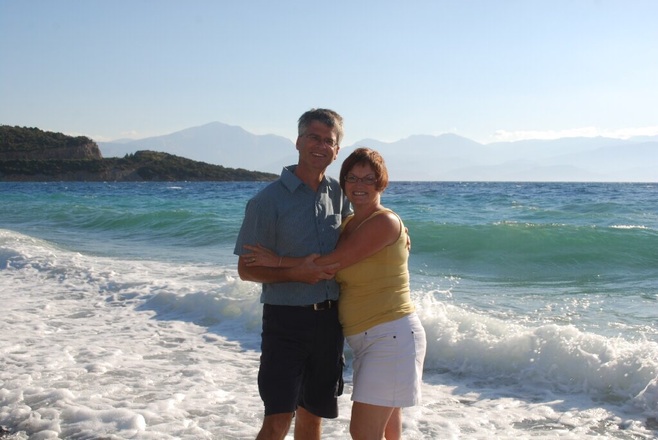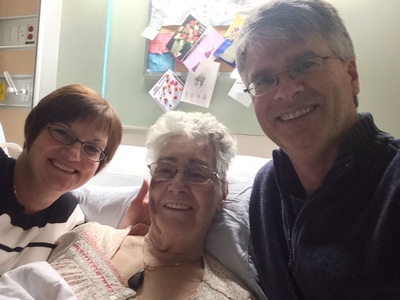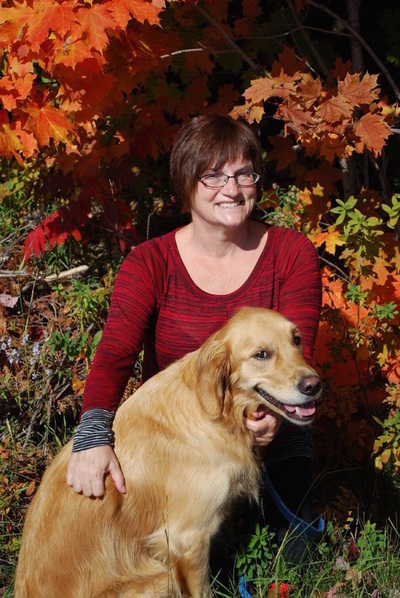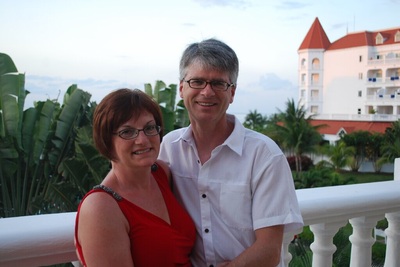Spouses: Staying together through chronic pain
When we are choosing a partner for life we never consider the bad times. We are so wrapped up in the excitement of all the wonderful things we are doing together and busy planning for a wedding, that most times the ‘in sickness and in health’ is never considered. Who knows, maybe none of us would marry if we had to think about that in depth prior to our wedding day. We never know what is around the corner when we marry. The love that we receive hopefully outweighs any potential hardship in the future. Yet we truly do not know what those hardships and decisions will entail.

Statistics show that marriages with a chronically ill partner end in divorce somewhere in the vicinity of 75% of the time. That number is more accurate when the woman in the marriage is the person who becomes ill or is in pain.
A Seattle oncologist Dr. Marc Chamberlain, started to see an alarming pattern while treating his patients with brain tumors. His male patients, typically received support from their wives, while a number of his female patients were there without their husbands, and ended up separated or divorced soon after diagnosis.
He decided to do a formal study, working with four other physicians. They studied 515 patients who received diagnoses of brain tumors or Multiple Sclerosis from 2001-2006. The women were seven times as likely to become separated or divorced as the men, according to the study, published in the journal Cancer (November, 2009). Divorce was most common about six months after diagnosis, and people who were married longer seemed to fare better, overall.
That's something I noticed myself while recovering in the Lyndhurst rehab centre. I was there for three months after a previous neuro-surgery and during my daily physiotherapy treatments, I saw few husbands, yet most men had their wives by their sides. I asked Sylvia, my physiotherapist, if this was common. She said it was very common. Most wives either were not working or took an extended leave while their partners were in rehab, while most women went it alone.
I had a sensible mix of both. Barry had to be in North Bay – 400 km away - for a part of the week to care for the girls while they were in school. We came to a great compromise. He took them out of school Fridays and every Thursday night they drove to Toronto. We spent Friday, Saturday and Sunday morning together. It was difficult to be alone during the week, I readily admit, but it was the right decision.
I didn't give in to the loneliness - I used it as a motivator to get myself out of their sooner.
As far as our marriage being threatened by my illness I would say it was not. We had some very tough times, but the focus through those though times was never on the marriage, it was on the illness. We tried very hard to work together and communicate what was going to work for each of us.
I had wanted Barry and the children near me while I recovered. At that time we had no idea how long it was going to take. He arranged for the girls to attend a school right next to the rehab centre. Barry had found an apartment he could rent by the month nearby and his employer had an office in Toronto he could work from. It seemed like a good idea to me. I was broken, lonely and desperate to have my family nearby. We had a difficult discussion. They didn't want to do that. It was too much of an upheaval for all of them. I see that clearly today, but on that day, I fell apart. I was as vulnerable as I had every been, and I just wanted the comfort of having them there to hug daily.
Barry made the right decision and I have never held that against him. Although I'm sure I didn't make it easy for him with all my tears that day. He did the best he could with the compromise we came up with. It had to have been very difficult for him and I know it certainly was for me.
I have a great husband. He's a wonderful father and a terrific friend. He laughs at all of my stupid jokes and makes me laugh every single day. We choose laughter over tears and anger every day. Don't dwell on what you cannot change, and do the best with what you have been given. That's kind of our motto. We know well that every couple has a challenge, my health has been ours.
I know our love is strong, but it just doesn't happen, it has to be nourished. We have fun together every chance we get. He asks me every day how I'm doing, I'm honest, but then we move on quickly. It's nice to know he cares enough to still ask after all these years, but it can't be our focus every day all day long. Boring!
He has a life. He plays in a band, plays squash and goes to the gym, has a love affair with his bike and cycles to work daily three seasons of the year. He knows he is free to make plans without me. The making plans without me part is an option he doesn't initiate, thankfully. Most importantly I don't expect him to give up what I can no longer do. We compromise today as we had to in those early days at Lyndhurst. We've become experts.
Having a supportive spouse means having somebody you can be truly vulnerable with, and somebody who will be your truth. It's a fine balance between doing for you, and helping you do for yourself.
I want a partnership, a husband and a friend; therefore he cannot be my caregiver one hundred percent of the time. During times of acute illness or surgery obviously things change. There's a shift, but as soon as possible it is important to get the equilibrium back, and be husband and wife again. No marriage can survive a patient/caregiver relationship forever.
I think above everything else, what makes it work is to remember to be kind and loving to the person who is not sick. Recognize that their lives have changed too, and remember to not only be grateful for them but to vocalize it.
So thank you Barry, you are the best husband I could have ever asked for, thanks for making me laugh every day. We have many adventures ahead of us and places left to see in the world, and we dream and plan for those things daily.
I'll leave you with the words of a hero of mine...
"Once you choose hope anything's possible" -Christopher Reeves
A Seattle oncologist Dr. Marc Chamberlain, started to see an alarming pattern while treating his patients with brain tumors. His male patients, typically received support from their wives, while a number of his female patients were there without their husbands, and ended up separated or divorced soon after diagnosis.
He decided to do a formal study, working with four other physicians. They studied 515 patients who received diagnoses of brain tumors or Multiple Sclerosis from 2001-2006. The women were seven times as likely to become separated or divorced as the men, according to the study, published in the journal Cancer (November, 2009). Divorce was most common about six months after diagnosis, and people who were married longer seemed to fare better, overall.
That's something I noticed myself while recovering in the Lyndhurst rehab centre. I was there for three months after a previous neuro-surgery and during my daily physiotherapy treatments, I saw few husbands, yet most men had their wives by their sides. I asked Sylvia, my physiotherapist, if this was common. She said it was very common. Most wives either were not working or took an extended leave while their partners were in rehab, while most women went it alone.
I had a sensible mix of both. Barry had to be in North Bay – 400 km away - for a part of the week to care for the girls while they were in school. We came to a great compromise. He took them out of school Fridays and every Thursday night they drove to Toronto. We spent Friday, Saturday and Sunday morning together. It was difficult to be alone during the week, I readily admit, but it was the right decision.
I didn't give in to the loneliness - I used it as a motivator to get myself out of their sooner.
As far as our marriage being threatened by my illness I would say it was not. We had some very tough times, but the focus through those though times was never on the marriage, it was on the illness. We tried very hard to work together and communicate what was going to work for each of us.
I had wanted Barry and the children near me while I recovered. At that time we had no idea how long it was going to take. He arranged for the girls to attend a school right next to the rehab centre. Barry had found an apartment he could rent by the month nearby and his employer had an office in Toronto he could work from. It seemed like a good idea to me. I was broken, lonely and desperate to have my family nearby. We had a difficult discussion. They didn't want to do that. It was too much of an upheaval for all of them. I see that clearly today, but on that day, I fell apart. I was as vulnerable as I had every been, and I just wanted the comfort of having them there to hug daily.
Barry made the right decision and I have never held that against him. Although I'm sure I didn't make it easy for him with all my tears that day. He did the best he could with the compromise we came up with. It had to have been very difficult for him and I know it certainly was for me.
I have a great husband. He's a wonderful father and a terrific friend. He laughs at all of my stupid jokes and makes me laugh every single day. We choose laughter over tears and anger every day. Don't dwell on what you cannot change, and do the best with what you have been given. That's kind of our motto. We know well that every couple has a challenge, my health has been ours.
I know our love is strong, but it just doesn't happen, it has to be nourished. We have fun together every chance we get. He asks me every day how I'm doing, I'm honest, but then we move on quickly. It's nice to know he cares enough to still ask after all these years, but it can't be our focus every day all day long. Boring!
He has a life. He plays in a band, plays squash and goes to the gym, has a love affair with his bike and cycles to work daily three seasons of the year. He knows he is free to make plans without me. The making plans without me part is an option he doesn't initiate, thankfully. Most importantly I don't expect him to give up what I can no longer do. We compromise today as we had to in those early days at Lyndhurst. We've become experts.
Having a supportive spouse means having somebody you can be truly vulnerable with, and somebody who will be your truth. It's a fine balance between doing for you, and helping you do for yourself.
I want a partnership, a husband and a friend; therefore he cannot be my caregiver one hundred percent of the time. During times of acute illness or surgery obviously things change. There's a shift, but as soon as possible it is important to get the equilibrium back, and be husband and wife again. No marriage can survive a patient/caregiver relationship forever.
I think above everything else, what makes it work is to remember to be kind and loving to the person who is not sick. Recognize that their lives have changed too, and remember to not only be grateful for them but to vocalize it.
So thank you Barry, you are the best husband I could have ever asked for, thanks for making me laugh every day. We have many adventures ahead of us and places left to see in the world, and we dream and plan for those things daily.
I'll leave you with the words of a hero of mine...
"Once you choose hope anything's possible" -Christopher Reeves




